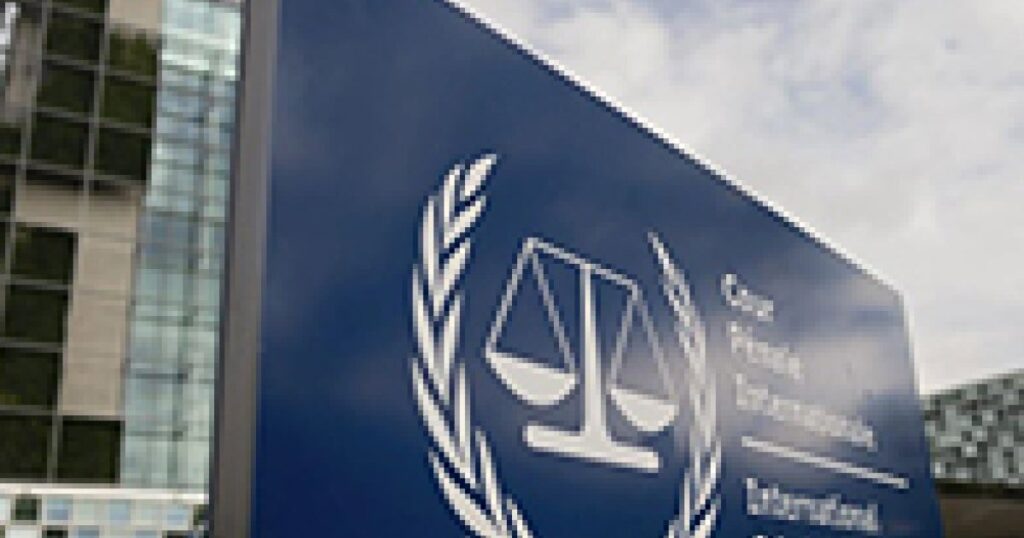To Minister for Foreign Affairs Yoko Kamikawa
On May 20, International Criminal Court (ICC) prosecutor Karim Khan applied to the court's judges for arrest warrants for three Hamas leaders – Yahya Sinwar, Mohammed Diab Ibrahim al-Masri (aka Deif), and Ismail Haniyeh – and two senior Israeli officials – Benjamin Netanyahu and Yoav Gallant – for crimes allegedly committed after October 7, 2023, in connection with the ongoing Palestinian investigation.
We, the undersigned Japanese NGOs, as an ICC Member State committed to a rules-based international order, urge Japan to protect the Court's independence and publicly condemn any attempts to intimidate or obstruct the Court's work, its staff, and those cooperating with the Court.
On April 24, 12 US senators wrote to Khan threatening to suspend all US support for the ICC, impose sanctions on the institution and its staff, and ban prosecutors and court officials from entering the US if any steps are taken to pursue warrants against Israeli officials. US lawmakers have also introduced legislation aimed at sanctioning ICC officials. The House Speaker called on the Biden administration to “call for an immediate and unequivocal withdrawal from the ICC, and that the United States should take all steps to prevent such abhorrent conduct.”
Meanwhile, there are reports that the Israeli government is seeking support from ICC member states and other governments in its opposition to the prosecutor's investigation into Palestine. Israeli Prime Minister Benjamin Netanyahu has also publicly denounced the ICC and called on governments to block the court's efforts to scrutinize Israel's actions. In response to these attacks, the prosecutor's office released a statement on May 3, pointing out the court's jurisdiction over crimes against the administration of justice and saying:[ing] Immediately cease all attempts to obstruct, intimidate or improperly influence officials.”
The presidency of the Assembly of States Parties (ASP), the ICC's governing body, has called for respect for the Court's independence in the wake of these latest threats. This is not the first time the ICC has faced political opposition. As you know, the previous US administration abused the sanctions regime against the Prosecutor's predecessor to undermine or block investigations that may involve US or Israeli nationals. At the time, 67 member states, the ASP presidency, and non-governmental organizations defended the Court. When the current US administration lifted the sanctions in 2021, Japan welcomed the move. Similarly, Russia issued arrest warrants against six of the Court's judges, including Khan and the current ICC chair, Akane Tomoko, in 2023, after issuing an arrest warrant for Russian President Putin as part of the Prosecutor's ongoing Ukraine investigation. Russian legislators also enacted a law criminalizing cooperation with the ICC. Member states and the ASP presidency, including Japan, have publicly condemned such attacks on the ICC.
The ICC plays a vital role as the court of last resort to bring justice to victims of the world's worst crimes, and ICC member states, like Japan, have a responsibility to uphold the Court's impartiality and independence in all cases.
We took note of the 14 May statement made by Japan and Switzerland on behalf of the ICC Member States in the UN Security Council, in which they reiterated their determination to protect and uphold the values of the Rome Statute “without succumbing to threats or measures against the Court, its officials or those collaborating with it.”
We call on Japan to make clear that it fully supports the Court's independent review of the prosecutor's request for an arrest warrant in the Palestinian situation, and will seek public support for any arrest warrant issued by the Court, work to ensure its execution, and pressure the Palestinian and Israeli authorities to cooperate with the Court.
“Unfortunately, many ICC member states were initially silent about the importance of pursuing accountability and justice at the Court for Israeli and Palestinian victims who have faced impunity for decades. This creates a perception of double standards and puts the ICC's legitimacy at risk. It is vital that the ICC is able to investigate and prosecute serious international crimes in all situations under its jurisdiction.”
Whether the ICC can meaningfully and effectively fulfill its mandate depends in large part on the willingness of the international community and ICC member states like Japan to support impartial and independent justice, regardless of where or who committed the violations. We urge your government to make clear that it will stand on the side of those who seek justice for serious human rights crimes, not those who would intimidate or harass prosecutors and judges seeking to bring to justice those who have committed serious human rights violations.
Sincerely,
[2 Coordinating organizations]
Human Rights Watch
Human Rights Now
[32 organizations, Japanese Alphabetical order]
Women's War and Peace Museum (WAM)
Peace Cell Project
Iraq War Research Network
Osaka YWCA
Open-mindedness
Kansai Gaza Emergency Action
Kyoto Asia Africa Latin America Solidarity Friendship
Kyoto YWCA
Japan Overseas Christian Medical Association
Shizuoka YWCA
Landmine Ban Japan Campaign
ayus: International Cooperation Buddhist Volunteer Network
Africa-Japan Forum
NPO Earth Tree
Japan International Volunteer Center
Alternative People's Linkage in Japan
A piece of Syria
Nagoya YWCA
Japan YWCA
Itabashi Peace Museum Campaign
Human Rights Watch
Human Rights Now
Asian Women's Equality Association
Japan Network Against Arms Trade
Winds of citizen unity for peace
Green Osaka
Citizens' Network Against the Use of Depleted Uranium Weapons
BDS Tokyo
Kumamoto YWCA
Actions to Prevent Militarization
Space Alliance


